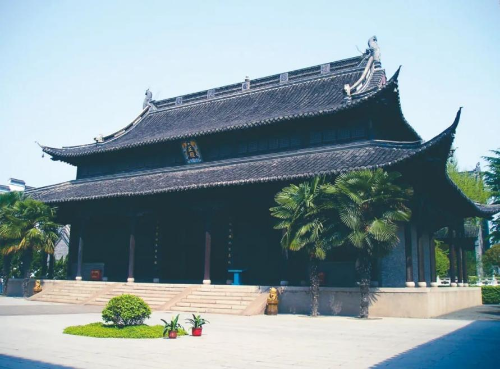Recently, the Jiangsu Provincial Government officially approved Yancheng’s designation as a Historical and Cultural City, marking a significant milestone for the city.
Yancheng’s history has been deeply intertwined with salt, as it was once a major center for the salt fields of the south and north reaches of the Huai River and a key transit hub. It was also the site where the New Fourth Army rebuilt its headquarters during the war. The city’s long history is rich in cultural heritage, with salt culture and revolutionary history holding particular significance.
The city’s unique geographical landscape has given rise to expansive mudflats, distinctive ecological features, and a wealth of historical and cultural sights. With over 2,000 years of salt production, 2,000 years of administrative history, and more than 1,000 years of urban development, Yancheng blends ancient traditions with modern vitality, preserving its historic charm while embracing contemporary life. Its cultural resources are a treasure trove, including the well-preserved ancient city of “Piao” with its intact layout, abundant historical relics, vibrant intangible cultural heritage, and a long-standing tradition of literary and heroic figures. These qualities form a solid foundation for Yancheng’s successful bid to become a recognized Historical and Cultural City.
In recent years, the municipal government has placed great emphasis on preserving Yancheng’s historical and cultural heritage, continuously integrating preservation efforts into urban and rural development strategies.
Key initiatives include:
1. Establishing a comprehensive framework for historical and cultural preservation, with the city government overseeing the overall plan, local districts and counties responsible for implementation, and departments working together under professional guidance. This unified approach ensures coordinated action and effective management.
2. Enacting local laws, such as the Yancheng Revolutionary Sites and Memorial Facilities Protection Ordinance, and developing comprehensive historical and cultural preservation plans, laying a solid groundwork for long-term heritage protection.
3. Conducting thorough surveys of the city’s historical and cultural resources, advancing the recognition of historical towns and villages, and implementing a pre-construction archaeological review system. Preservation work is being carried out with a focus on gradual restoration, with efforts aimed at protecting historical buildings, improving living conditions in heritage districts, and safeguarding the city’s overall historical atmosphere.
As Yancheng moves forward with its newly granted status as a provincial Historical and Cultural City, it remains committed to honoring its past while integrating its cultural heritage into the ongoing development of the city. With greater determination and higher standards, the city will continue to protect, preserve, and utilize its cultural assets, ensuring they play a central role in the city’s future development. Yancheng aims to share the story of China’s rich traditional culture and contribute to the broader goals of Chinese modernization.



 苏公网安备 32090202000639号
苏公网安备 32090202000639号